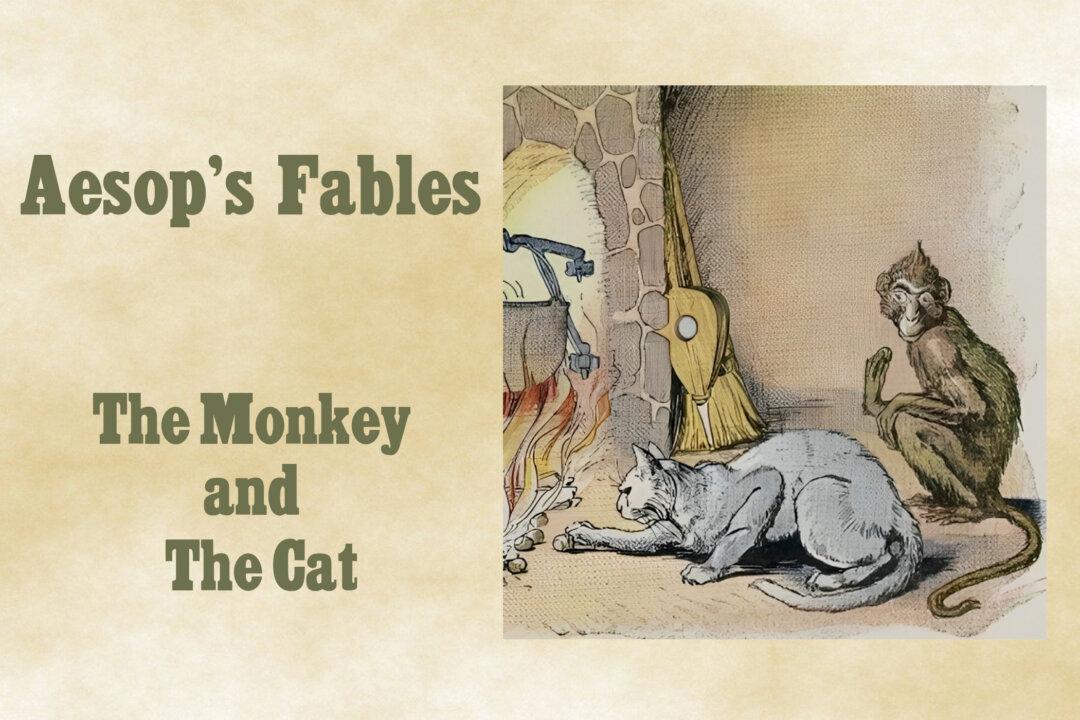Once upon a time a Cat and a Monkey lived as pets in the same house. They were great friends and were constantly in all sorts of mischief together. What they seemed to think of more than anything else was to get something to eat, and it did not matter much to them how they got it.
One day they were sitting by the fire, watching some chestnuts roasting on the hearth. How to get them was the question.






